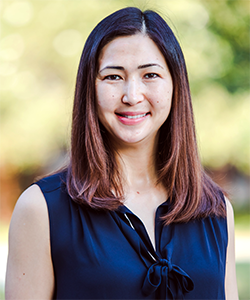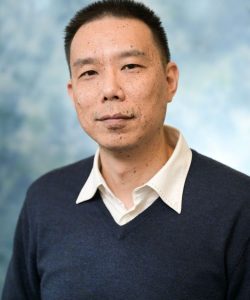The properties of most materials, such as their ability to emit light or bind to specific molecules, change dramatically when they are shrunk from the macro-scale down to the nano-scale (1 nanometer = 1 billionth of a meter). Sometimes, we can even stabilize materials at the nanoscale in structures that cannot be formed in larger “bulk” samples. Here at UF, we create nanomaterials with unique structures and properties that allow us to engineer new solutions to current challenges in biomedicine, electronics, energy storage, and catalysis.
Faculty

Ph.D., 2008, University of California, Santa Barbara
Research Interests: nanomaterials, nanocomposites for electronic and biomedical applications, magnetic materials, multiferroics, polymers
Lab Website: Andrew Research Group




